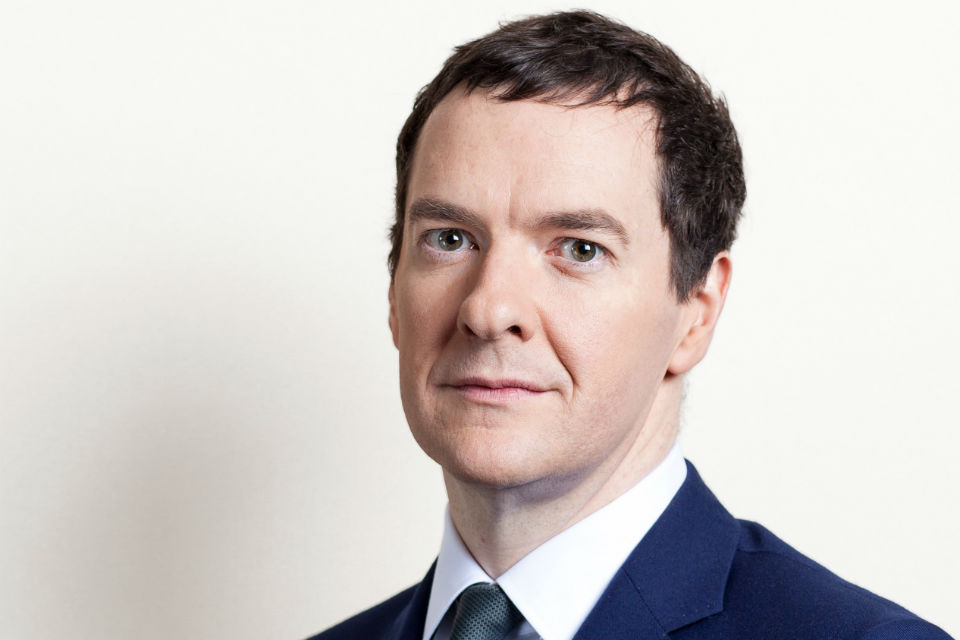Remarks by the Chancellor of the Exchequer, Rt Hon George Osborne MP, at the International Monetary Fund (IMF) Article IV concluding statement
Remarks by the Chancellor of the Exchequer.

It gives me great pleasure to be able to introduce John Lipsky, the acting Managing Director of the IMF, and his team here in the Treasury building.
The need for better international scrutiny of national economies is one of the main lessons that we have learnt from the last few years.
As John will explain shortly, this year’s annual Article IV economic assessment by the IMF has been accompanied by two additional reports.
One is an in-depth analysis of the UK financial sector.
The other is the first ever IMF “spillover” report.
This is the new work exclusive to the five economies that have been identified as systemically important - the US, China, Japan, the Eurozone and the UK.
This looks at the relationship between the UK’s domestic policies and the wider stability of the global economy.
This is an important policy innovation in macroeconomic surveillance, which will complement the work of G20 Finance Ministers to deliver strong, sustainable and balanced growth.
Both are important steps. We should all hope these new tools will help us avoid future financial and economic crises on the scale of the one we have just experienced.
But more scrutiny and early warning is not enough on its own - national governments need to listen to what independent international organisations like the IMF are saying.
Indeed the IMF’s own independent evaluation of its performance in the run up to the crisis revealed that in the case of the UK many warnings were made in private, especially about the precarious fiscal position.
If those warnings had been heeded, rather than suppressed, then we would not find ourselves confronting such a huge fiscal challenge today.
So let me very briefly set out the main lessons that I draw from today’s IMF’s report on the UK.
First, I welcome the IMF’s continued strong support for our overall macroeconomic policy mix, including our deficit reduction strategy.
As the opening sentence of their report states, “the post-crisis repair of the UK economy is underway”.
Difficult decisions on tax and spending inevitably generate opposition and lead some to argue that there is an easier way.
The IMF expert team have spent two weeks here engaging with all shades of opinion, including those who have been calling on us to change course.
The IMF have publicly asked themselves the question “whether it is time to adjust macroeconomic policies” - in other words, is it time to change course?
And they have concluded definitively that “the answer is no”.
As they state in their concluding statement, “strong fiscal consolidation is underway and remains essential”.
I also agree that the policy mix of deficit reduction and interest rates that stay lower for longer is the best way to rebalance our economy towards exports and investment.
Of course, the IMF note that the economic data in the UK has shown stronger job creation and tax receipts than expected, but - like many countries - weaker GDP growth and higher inflation than was forecast last year.
Their analysis suggests that a significant reason for this has been the unexpected spike in global oil and commodity prices.
Around the world this has led to slower growth and higher inflation than was forecast a year ago.
Here in the UK we have taken some domestic action to ease the pressure on households and businesses, such as the 6 pence per litre cut in fuel taxes relative to previous plans that I announced in the Budget.
And we should look at whether we can do more internationally to improve supply conditions and the operation of oil markets in order to stabilise prices and support the global recovery.
The second lesson I take from today’s IMF report is that we need to press on with medium and long-term reforms to improve the sustainability of our public finances.
The IMF today explicitly reference the reforms we have proposed to the state pension age, and John Hutton’s proposals on public sector pensions.
It is essential that we now see these through.
The IMF also reference our Plan for Growth, published earlier this year, which set out ambitious reforms to planning and regulation.
We are now working on a second phase of the Growth Review for publication in the Autumn.
Finally, we are reminded today that we must complete fundamental reforms to our financial system, both domestically and internationally.
I strongly agree with the IMF’s view that financial stability in the City of London is not just good for Britain, it is good for the world.
I welcome their recognition that this Government has shown global leadership on financial reform, including the creation of the Independent Commission on Banking and a new system of regulation.
And I particularly welcome the IMF’s support for proper international implementation of Basel 3 in a way that provides a level playing field, while retaining national discretion to operate macro-prudential tools.
I will have more to say on these issues in my Mansion House speech next week.
Let me conclude by saying we welcome the IMF here today.
We have had extremely good engagement with them that I believe has benefitted both sides.
And let me ask you all to welcome John Lipsky to present the IMF’s findings in detail.
Thank you.